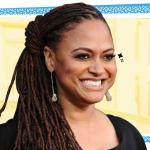Ava DuVernay Thinks Little Brown Girls Should Be Space Travelers, Too
https://portside.org/2017-07-18/ava-duvernay-thinks-little-brown-girls-should-be-space-travelers-too

Portside Date:
Author: Mattie Kahn
Date of source:
Elle

Ava DuVernay arrives on set ready to work. It's summer in New Orleans and the heat is sticky. Even the room-temperature bottles of water are sweating. But DuVernay seems impervious. She's just wrapped Queen Sugar, her first television series, which debuted on OWN earlier this month. She has made peace with this sun. And so she smoothes her hands over her skirt and rolls up her sleeves, literally, to get down to business.
The esteemed director is used to commanding a set, but she takes direction well. "Where would you like me?" she asks 11-year-old Marley Dias, founder of #1000BlackGirlBooks. "You're the boss."
DuVernay and Dias have met at the headquarters of Women With a Vision, a grassroots organization founded by a collective of black women to halt the spread of HIV/AIDS in communities of color. For almost three decades, women have gathered on the steps of the house out of which it operates to rally for reproductive access, women's equality, and racial justice. DuVernay and Dias take a tour of the offices, stopping to meditate on the declarative posters and to leave notes of support for the organization's volunteers. Already at ease, their conversation ricochets between books, movies, stories, politics, and progress. Women with a vision, indeed.
Once they've made the rounds, Dias shows DuVernay to her seat and takes her own. "We can start for real now," she says. And DuVernay nods. Dias wants to know whether DuVernay saw representations of blackness on television and in books when she was a kid. Surely, Dias wasn't the first to notice the lack of representation.
"No," DuVernay says, explaining that she could probably point to "a handful of things that I recall at the time had inclusive casts." She remembers The Cosby Show and Miami Vice, but she can't name a third.
"INCLUSION IS REALLY HALF—HALF OF THE CAST, HALF OF THE DIRECTORS, HALF OF THE WRITERS ARE WOMEN OR GIRLS, HALF OF THE ROOM, MORE THAN HALF OF THE ROOM IS OF COLOR...I THINK WE GET REALLY SATISFIED WITH LESS."
That she can "count on one hand" the TV shows that she saw that were inclusive of black stories is "a real shame," she says. DuVernay, who has championed inclusive casts and crews on her movies, takes a moment to make her public service announcement.
People seem to think that a movie or a television show or a book is "diverse" when there are "one or two black people or brown people, or one girl or a couple of girls," DuVernay says. "Inclusion is really half—half of the cast, half of the directors, half of the writers are women or girls, half of the room, more than half of the room is of color," she says. "I think we get really satisfied with less."
DuVernay isn't willing to settle. The Compton native keeps her eye fixed on the prize: 50 percent or it's not good enough. DuVernay believes it falls to her to "embed nuance and texture" into the work that she makes. It takes difference to do that well—different people, different perspectives, more eyes, more points of view.
For Queen Sugar, DuVernay recruited women to direct all the episodes. She tapped mostly women and minorities to edit the series—"A Latino woman colorist. A black woman post-production supervisor. Black woman composer. A Latino man is our DP," she said, running the numbers in an interview with NPR. DuVernay is now shooting A Wrinkle in Time, making her the first black female director and only the third woman ever to helm a $100 million movie. As she was looking for her leads, DuVernay explicitly called for mixed race and biracial children. And it was especially critical to her that she find a superlative young woman to play 14-year-old Meg Murry, the story's hero. Last week, she announced she'd found her in 12 Years a Slave actress Storm Reid.
DuVernay is quick to add that Disney has backed her vision for the movie, explaining that executives were "super into" her take on how the story could evolve. But while the institutional support is essential, the fact that she's going to tell the tale of "a little brown girl traveling off Earth in an epic search for her father" is her personal pleasure. "I want to make that movie," she says. "Who else are you going to call? You've got to call me!"
"FORWARD-THINKING PEOPLE AND ALLIES OF THIS CAUSE WITHIN THE INDUSTRY HAVE THE COMMON SENSE TO KNOW THAT THIS IS SYSTEMIC."
It sounds like heaven, but DuVernay isn't about to relax now. She can't stand that her success could be taken as evidence that we've gotten much closer to some watershed moment.
"Forward-thinking people and allies of this cause within the industry have the common sense to know that this is systemic," DuVernay said in an interview with The Hollywood Reporter in August. "There needs to be more done than applauding one or two people who make it through your door."
"Racism, sexism, classism—it's a patriarchal system, a system that's built by a certain kind of person, a man," DuVernay says, that threatens what little progress we've made. And it's easier for white men to maintain the status quo, to keep telling stories about themselves, to keep shutting out difference.
"Let's just do this because of the system, right?" DuVernay says, fixing her eyes on Dias. "Because of who decides, right? Because they get to dictate unless we break [the barriers] open, which you're doing and I do."
She takes a deep breath: "So, bam."
